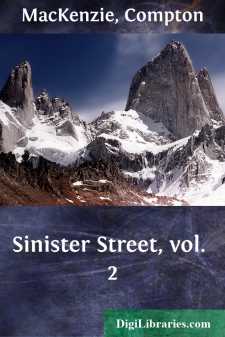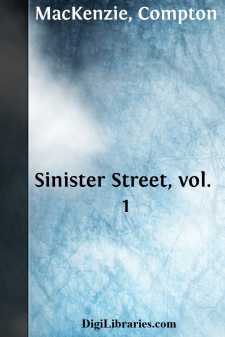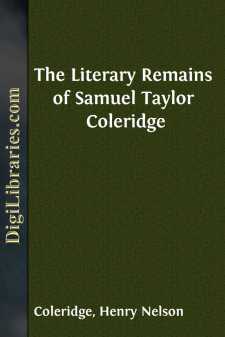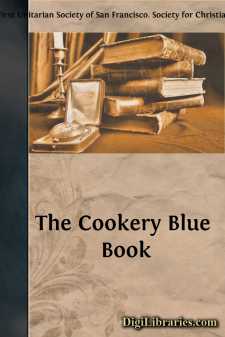Categories
- Antiques & Collectibles 13
- Architecture 36
- Art 48
- Bibles 22
- Biography & Autobiography 813
- Body, Mind & Spirit 138
- Business & Economics 28
- Children's Books 12
- Children's Fiction 9
- Computers 4
- Cooking 94
- Crafts & Hobbies 4
- Drama 346
- Education 46
- Family & Relationships 57
- Fiction 11821
- Games 19
- Gardening 17
- Health & Fitness 34
- History 1377
- House & Home 1
- Humor 147
- Juvenile Fiction 1873
- Juvenile Nonfiction 202
- Language Arts & Disciplines 88
- Law 16
- Literary Collections 686
- Literary Criticism 179
- Mathematics 13
- Medical 41
- Music 40
- Nature 179
- Non-Classifiable 1768
- Performing Arts 7
- Periodicals 1453
- Philosophy 64
- Photography 2
- Poetry 896
- Political Science 203
- Psychology 42
- Reference 154
- Religion 508
- Science 126
- Self-Help 81
- Social Science 81
- Sports & Recreation 34
- Study Aids 3
- Technology & Engineering 59
- Transportation 23
- Travel 463
- True Crime 29
Carnival
Description:
Excerpt
Chapter I: The Birth of Columbine
ALL day long over the gray Islington Street October, casting pearly mists, had turned the sun to silver and made London a city of meditation whose tumbled roofs and parapets and glancing spires appeared hushed and translucent as in a lake's tranquillity.
The traffic, muted by the glory of a fine autumn day, marched, it seemed, more slowly and to a sound of heavier drums. Like mountain echoes street cries haunted the burnished air, while a muffin-man, abroad too early for the season, swung his bell intermittently with a pastoral sound. Even the milk-cart, heard in the next street, provoked the imagination of distant armor. The houses seemed to acquire from the gray and silver web of October enchantment a mysterious immensity. There was no feeling of stressful humanity even in the myriad sounds that, in a sheen of beauty, floated about the day. The sun went down behind roofs and left the sky plumed with rosy feathers. There was a cold gray minute before dusk came stealing in, richly and profoundly blue: then night sprang upon the street, and through the darkness an equinoctial wind swept, moaning.
Along the gutters the brown leaves danced: the tall plane tree at the end of the street would not be motionless until December should freeze the black branches in diapery against a somber sky. Along the gutters the leaves whispered and ran and shivered and leaped, while the gas-jets flapped in pale lamps.
There was no starshine on the night Jenny Raeburn was born, only a perpetual sound of leaves dancing and the footsteps of people going home.
Mrs. Raeburn had not been very conscious of the day's calm beauty. Her travail had been long: the reward scarcely apprehended. Already two elder children had closed upon her the gates of youth, and she was inclined to resent the expense of so much pain for an additional tie. There was not much to make the great adventure of childbirth endurable. The transitory amazement of a few relatives was a meager consolation for the doubts and agonies of nine slow months. But the muslin curtains, tied back with raffish pink bows, had really worried her most of all. Something was wrong with them: their dinginess or want of symmetry annoyed her.
With one of those rare efforts towards imaginative comprehension, which the sight of pain arouses in dull and stolid men, her husband had inquired, when he came back from work, whether there was anything he could do.
"Those curtains," she had murmured.
"Don't you get worrying yourself about curtains," he had replied. "You've got something better to do than aggravate yourself with curtains. The curtains is all right."
Wearily she had turned her face to the sad-colored wallpaper. Wearily she had transferred her discontent to the absence of one of the small brass knobs at the foot of the bed.
"And that knob. You never remember to get a new one."
"Now it's knobs!" he had exclaimed, wondering at the foolishness of a woman's mind in the shadows of coming events. "Don't you bother your head about knobs, either. Try and get a bit of sleep or something, do."
With this exhortation, he had retired from the darkening room, to wander round the house lighting various jets of gas, turning them down to the faintest blue glimmer, and hoping all the while that one of his wife's sisters would not emerge from the country at the rumor of the baby's arrival, in order to force her advice upon a powerless household.
Edith and Alfred, his two elder children, had been carried off by the other aunt to her residence in Barnsbury, whence in three weeks they would be brought back to home and twilight speculations upon the arrival of a little brother or sister. In parenthesis, he hoped it would not be twins. They would be so difficult to explain, and the chaps in the shop would laugh. The midwife came down to boil some milk and make final arrangements. The presence of this ample lady disturbed him. The gale rattling the windows of the kitchen did not provide any feeling of firelight snugness, but rather made his thoughts more restless, was even so insistent as to carry them on its wings, weak, formless thoughts, to the end of Hagworth Street, where the bar of the "Masonic Arms" spread a wider and more cheerful illumination than was to be found in the harried kitchen of Number Seventeen. So Charlie Raeburn went out to spend time and money in piloting several friends across the shallows of Mr. Gladstone's mind.
Upstairs Mrs. Raeburn, left alone, again contemplated the annoying curtains; though by now they were scarcely visible against the gloom outside....















